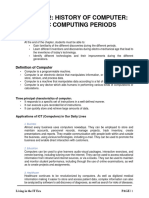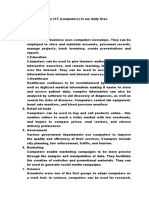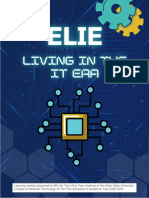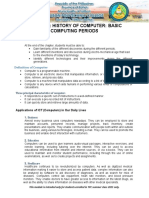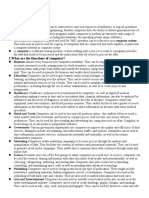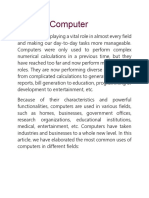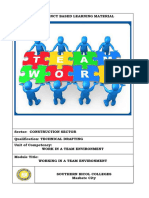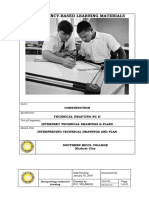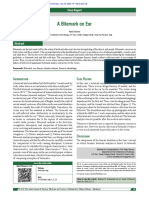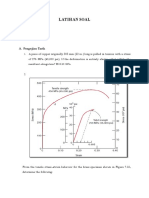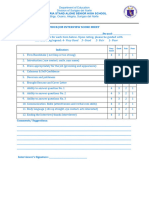0% found this document useful (0 votes)
87 views4 pagesHistory of Computer
Computer is an electronic device that can store, process, and retrieve data according to a set of instructions. Computers are now used in nearly every aspect of modern life including business, education, healthcare, communication, banking, transportation, navigation, entertainment, social networking, travel, security, weather forecasting, and robotics. Computers have revolutionized these fields by enabling new capabilities like online shopping, remote work, digital media, and automated systems.
Uploaded by
Erna CulalaCopyright
© © All Rights Reserved
We take content rights seriously. If you suspect this is your content, claim it here.
Available Formats
Download as PDF, TXT or read online on Scribd
0% found this document useful (0 votes)
87 views4 pagesHistory of Computer
Computer is an electronic device that can store, process, and retrieve data according to a set of instructions. Computers are now used in nearly every aspect of modern life including business, education, healthcare, communication, banking, transportation, navigation, entertainment, social networking, travel, security, weather forecasting, and robotics. Computers have revolutionized these fields by enabling new capabilities like online shopping, remote work, digital media, and automated systems.
Uploaded by
Erna CulalaCopyright
© © All Rights Reserved
We take content rights seriously. If you suspect this is your content, claim it here.
Available Formats
Download as PDF, TXT or read online on Scribd
/ 4



